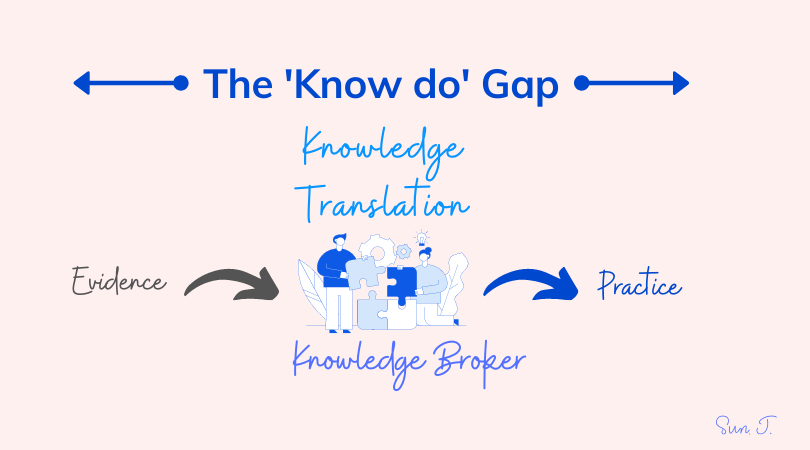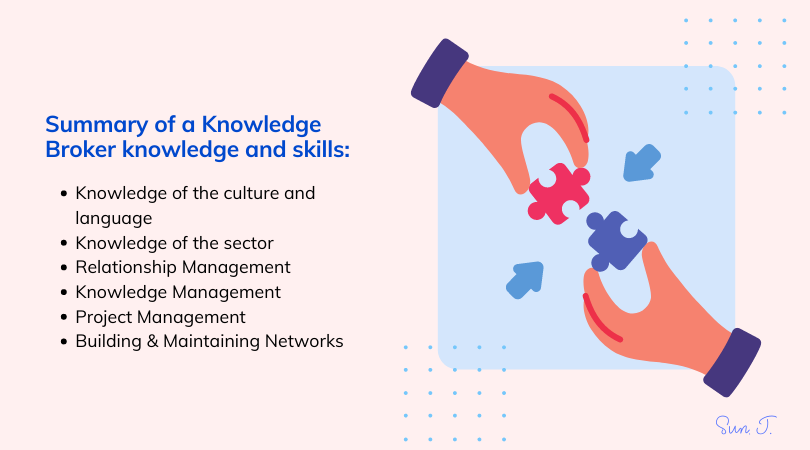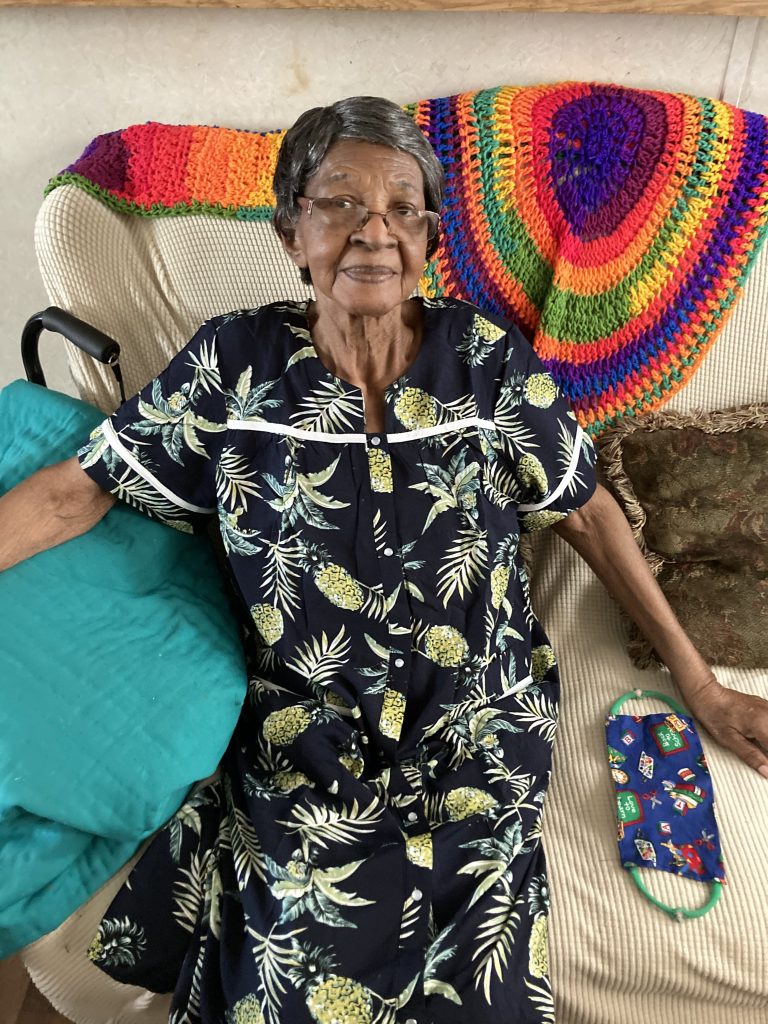As international and cross-cultural projects in the dementia care continue to increase, there is a growing need to ensure that evidence-based best practices can be translated, shared and culturally implemented to improve key outcomes for people living with dementia. However, a phenomenon known as the ‘know-do’ gap is evident in the health care sector (Ward et al., 2010; Gladman, Conroy, & Ramhoff et al., 2016; Hunter, 2019). The ‘Know-do’ gap is the inability to translate available or existing evidence into practice, resulting in a gap between the evidence and practice (Gladman, Conroy, & Ramhoff et al., 2016). Barriers associated with the ‘Know do’ gap include information that is incompatible with stakeholders, antithetical culture, and a poor understanding of barriers and facilitators (Hunter, 2019). Researchers and innovators may have strong evidence but have little knowledge of these existing barriers. Researchers and innovators seeking to adapt or introduce evidence into a new community may grapple or fail in the introduction, implementation and sustainability of the evidence-based practice.

To address this gap; researchers seeking to introduce knowledge to new stakeholders must have a clear understanding of knowledge translation. Knowledge translation according to the World Health Organisation is the “the synthesis, exchange, and application of knowledge by relevant stakeholders to accelerate the benefits of global and local innovation in strengthening health systems and improving people’s health” (p.1). Within knowledge translation, a human element serves as a bridge between researchers and stakeholders, that enables effective knowledge translation. This bridge ensures that is evidence is translated appropriately for alignment and understanding. At the same time, enabling cultural acceptance and collaborative relationship building is necessary to help researchers and stakeholders achieve positive outcomes. A knowledge broker is a human element and bridge between researchers and stakeholders. They are an individual or a team who enables the translation, management and alignment of knowledge (Robeson, Dobbins & DeCorby, 2008; Bornbaum, 2015). Through the successful management and alignment of information, the knowledge broker can enable capacity building among stakeholders as their literacy of the evidence increases (Robeson, Dobbins & DeCorby, 2008). Researchers should not discount the benefits of a knowledge broker. With such an individual in their team, the ‘Know-do’ gap can be adequately addressed through a smooth process of knowledge translation with the knowledge broker as the intermediary.

You can find out more about the practicalities of being a knowledge broker from our recent webinar with Joanna Sun, which you can access here.
We also had a number of questions following the webinar, which Joanna has answered below.
Q1. Does anyone know if a knowledge broker could be worked into a grant app? Or if there is a diff term for this role in the research world?
Joanna: Yes, the person can be a research assistant or a project officer, or a term that is relevant to your tertiary sector. There have been people who have put out advertisements for knowledge brokers but it’s a growing profession. You may be interested in the blog post and perhaps this article as well: https://www.sciencemag.org/careers/2012/06/emerging-professions-knowledge-broker
Q2: Isn’t it comparable to a network coordinator? Although the tailored cultural approach and knowledge translation of the broker as explained sounds like an added value to me. Could it in this way be part of the project management work package in a grant application?
Joanna: Yes, it can possibly be a network coordinator and yes it can be part of a project management package. A knowledge broker is a growing profession, and there is evidence to support the use of individuals or a team which may help you put together a PM work package to support your project. There are some references that may be useful for you in the blog post as well as this article: https://www.sciencemag.org/careers/2012/06/emerging-professions-knowledge-broker
O3. Gerat and interesting talk – I have a Question: Is the tool only for care Environments or also useful for public institutions? I run a Project About Dementia-friendly library and am Looking for evidence in this area – especially public Buildings.
Joanna: The tool that I designed is for Singaporeans living with dementia who are living in facilities that provide high levels of care. However, there is a dementia-friendly communities environmental assessment tool that you can refer to for your dementia-friendly library. Please note that the tool is Australian. http://www.tnha.com.tw/web/images/ckfinder/files/20180125091418.pdf
Q4. You have such great Graphs in your presentation – where do you get them/do you do them yourself? Thanks!
Joanna: Have a look at Canva, it’s a great tool and it’s free as well. https://www.canva.com/
Q5. I heard about cultural brokerage before. In what way is that different/complementary? And, to what extent is it necessary for a knowledge broker to really know the specific setting in which you are, for example implementing the evidence based intervention?
Joanna: A cultural broker is quite similar and it is also a bridge but as the name suggests it’s culturally specific. Culture brokers in Australia tend to be involved in more social and health settings, and helping people to understand the indigenous culture and to help reduce conflict in the development of services or introducing policies etc. In Australia, culture brokers tend to have quite specific and niche implementation roles compared to knowledge brokers who can be utilised across different countries and can be involved in planning, development, implementation and sustainability of projects.
A knowledge broker is broader, the broker not only has knowledge of the culture but also the sector and the subject matter being research or the innovation that is being promoted.
A knowledge broker should have knowledge of the barriers and facilitators that are aligned with your intervention because the role of the knowledge broker is to be able to aid the translation of evidence into practice. Without an understanding of barriers and facilitators which can be found in communication, language, culture, stakeholder engagement, project management… the gap cannot be addressed.
So for instance, a Singaporean culture broker could be a person who can inform the researcher about the population and culture in a minority group. However, they may not have knowledge of specific stakeholders in dementia care within the country, they may have some public level awareness of the health literacy of dementia but they will not be able to provide specifics of health literacy within the dementia care sector, or an understanding of the roles and responsibility, capacity and capability of the different manpower in the dementia care sector that may impact on your intervention.
References:
Bornbaum, C. C., Kornas, K., Peirson, L., & Rosella, L. C. (2015). Exploring the function and effectiveness of knowledge brokers as facilitators of knowledge translation in health-related settings: a systematic review and thematic analysis. Implementation Science, 10(1), 162.
Gladman, J. R., Conroy, S. P., Ranhoff, A. H., & Gordon, A. L. (2016). New horizons in the implementation and research of comprehensive geriatric assessment: knowing, doing and the ‘know-do’gap. Age and ageing, 45(2), 194-200.
Hunter, D. J. (2019). Meeting the Challenge of the” Know-Do” Gap: Comment on” CIHR Health System Impact Fellows: Reflections on ‘Driving Change’Within the Health System”. International journal of health policy and management, 8(8), 498.
Kislov, R., Wilson, P., & Boaden, R. (2017). The ‘dark side’ of knowledge brokering. Journal of health services research & policy, 22(2), 107-112.
Robeson, P., Dobbins, M., & DeCorby, K. (2008). Life as a knowledge broker in public health. Journal of the Canadian Health Libraries Association/Journal de l’Association des bibliothèques de la santé du Canada, 29(3), 79-82.
Ward, P. R., Thompson, J., Barber, R., Armitage, C. J., Boote, J. D., Cooper, C. L., & Jones, G. L. (2010). Critical perspectives on ‘consumer involvement’in health research: epistemological dissonance and the know-do gap. Journal of Sociology, 46(1), 63-82.
World Health Organisation (2020). Ageing and life-course: Knowledge Translation. Retrieved from http://www.who.int/ageing/projects/knowledge_translation/en/




